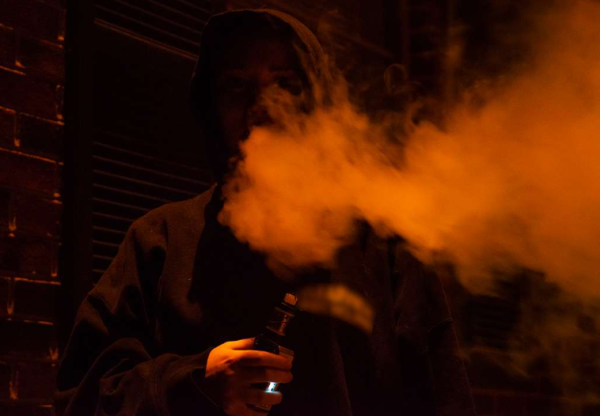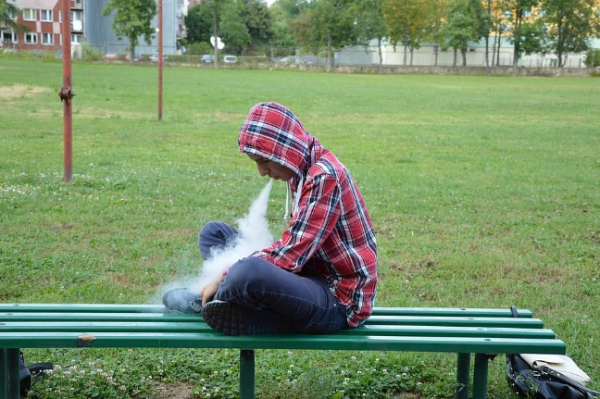Vaping at Kaiser High School continues to escalate, with both vape pens and E-cigarettes gaining popularity among students. Despite the well-known risks and harmful side effects associated with these substances, many students continue to use them, often driven by anxiety, depression, or peer influence. The vaping problem at Kaiser continues to get worse with more and more cigarettes and vape pens gaining prominence.
Despite these substances having harmful side effects that could ruin the student’s lives, students continue to use them. The public consensus on drugs like vape pens is still the same as the previous year.

Source:Defense Visual Information Distribution Service
(https://www.dvidshub.net/)
One student stated, “People have anxiety and/or depression, it’s mainly an escape.” Many students think that the use of illegal substances is a result of peer pressure and environmental influence.
Another student quips, “The influence of peers is a huge factor. People think it’s validating to do drugs.” 8 out of the 12 people that were interviewed thought that people did drugs because of peer pressure and the other four people thought it was because of anxiety and stress.
After getting interviews the data showed that most of the people had very similar opinions in terms of values and reasons for doing drugs. When asked why they do drugs in the first place they said things like, “It calms me down” and,”It makes me able to focus and think fast.” But the majority said that they do it when they are stressed.
Among the interviewees, a majority of them said that their friends were the main influence for them. Another interviewee said social media was their main source of influence. The most popular drug among the interviewees was weed. There have been multiple instances of students being offered these drugs.
A current junior student recalls a story of when they were offered to smoke. “I was surprised and really scared because it wasn’t just the fear of getting addicted but the pressure was scary as well. I just wanted to go to the bathroom.” This fear continued for other interactions relating to the bathroom. They said, “Sometimes when I see smoke I immediately don’t use it and it greatly discomforts me.”
A recurring answer to one of the questions was interesting. “Do you want to stop?” Every single one of the interviewees said yes. The reasons for the answer varied, one saying, “At some point just to get through school,” and another, “So I can sleep at night.” When asked if getting caught before had impacted them in any way, it was a unanimous no “Yes, but it didn’t change anything.”
All of the interviewees want to quit, but none of the help they have been given has had a resounding positive impact on their addiction. All the people that were interviewed on this topic were respectful and they did not seem like stereotypical bad people. They are people that need help and the interviews show that. The students suffering from addiction have not been shown that kindness or support from those around them. Many want to stop but they just need the proper guidance and support from peers or anyone able to help them.

The growing reluctance of students to use certain bathrooms due to vaping activity reflects a deeper issue of safety and comfort in school spaces. If the current cycle of peer pressure persists, Kaiser’s substance issues may only intensify. Addressing this crisis will require proactive support for students, education on healthy coping mechanisms, and a renewed focus on creating safe, accessible spaces within the school.





















